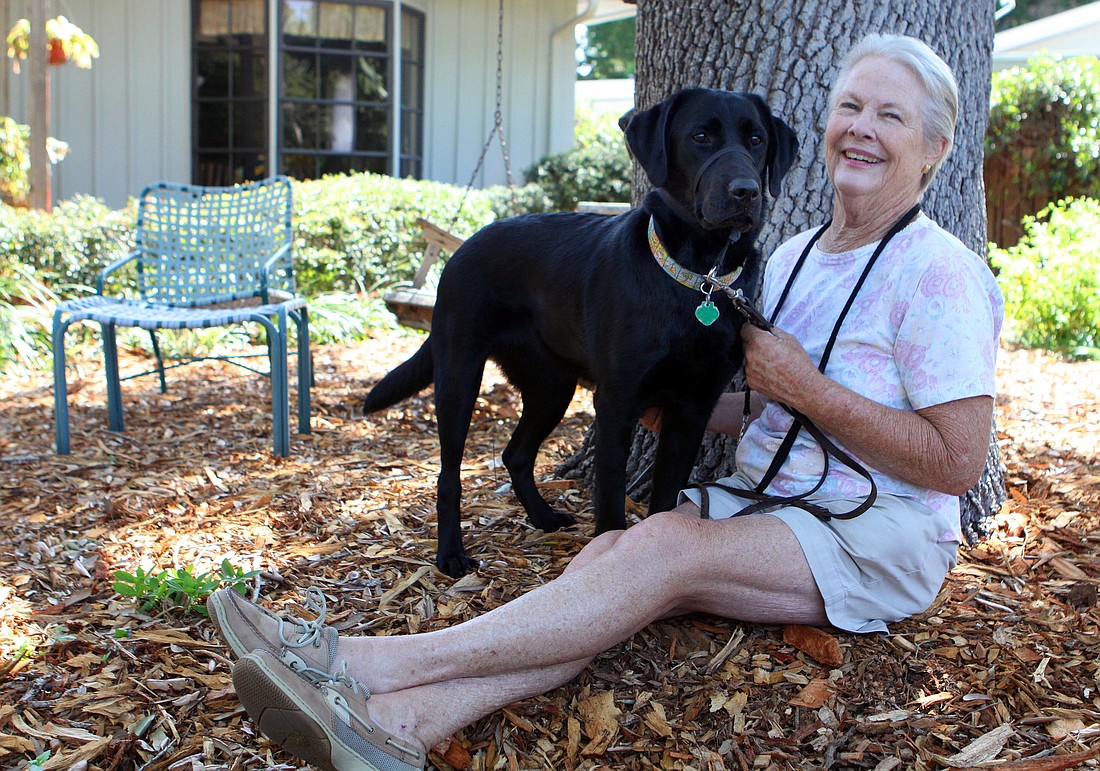- November 13, 2025
-
-
Loading

Loading

When Phyllis Ulrich was 12 years old, she earned her dog-training badge for Girls Scouts by completing obedience training with her family dog, Tippy.
The experience was one she enjoyed, and it later influenced her to become involved in training guide dogs and service dogs.
More than 25 years ago, Ulrich heard Mike Sergeant, former executive director and founder of Southeastern Guide Dogs, speak about the program. Following Sergeant’s talk, Ulrich visited the organization’s campus. After that visit, Ulrich was ready to commit her family to raising guide-dog puppies. To date, Ulrich has raised 20 puppies.
“The first dog I raised was perfect, but when he went into a kennel with other dogs, he got very territorial,” she says. “After that, my husband, George, and I got to work on building a kennel, and with the rest of the puppies, we made sure the puppies became comfortable in the kennel both alone and with other dogs.”
Learning experiences such as this helped to benefit not only Ulrich’s experiences with the dogs but also the success of the dogs she trained.
Three years ago, Ulrich began raising service dogs through Canine Companions for Independence. Although the organization is based in Santa Rosa, Calif., it has five training centers throughout the country, including one in Orlando. So far, Ulrich has had two CCI dogs, a yellow lab named Holland II and her current dog, a black lab and golden mix named Healy IV.
Ulrich says she always is impressed with how far along the 8-week-old CCI puppies are when they finally arrive in Sarasota after a 12-hour journey from San Francisco.
“They do an amazing job of exposing those little bitties,” she says.
Ulrich says the first view of the puppy when they come off the plane is one of the most exciting parts of being involved in training service animals.
“You know that you’re puppy is coming, and it comes, and you open that crate door, and there is the most gorgeous little puppy,” she says.
Although some of the exercises Ulrich used through Southeastern Guide Dogs are applicable to CCI puppies, there are significant differences in commands the CCI dogs need to learn while they are living with Ulrich. Both groups require the dogs to be able to go out in public and help their human counterpart. However, CCI dogs are taught a variety of skills, because they go to owners with a myriad of conditions, including cerebral palsy, muscular dystrophy, autism, Down syndrome and more. In all, the CCI dog must learn 40 different commands while in Ulrich’s care for 18 months.
“I try to get something done every day that is either a repeated exposure that needs to be repeated or a new one,” Ulrich says.
Healy must master her commands by November, when she will return to Orlando to go through six to eight more months of training. Then, she will be paired up with a person. Healy will then go through an intense two-week training session with her new user and then be part of a graduation ceremony.
Ulrich still gets teary on graduation day.
“I’ve heard it said that nobody loves these puppies more than we do, the puppy-raisers, but somebody else needs them more than we do,” she says. “I thank God for that. We work hard to get a job done and to get them to do the job.
“The thing that is really special is when that new owner is sitting next to you, and the dog has greeted you and remembers you and then goes back and says, ‘This is the one who needs me,’” Ulrich says.